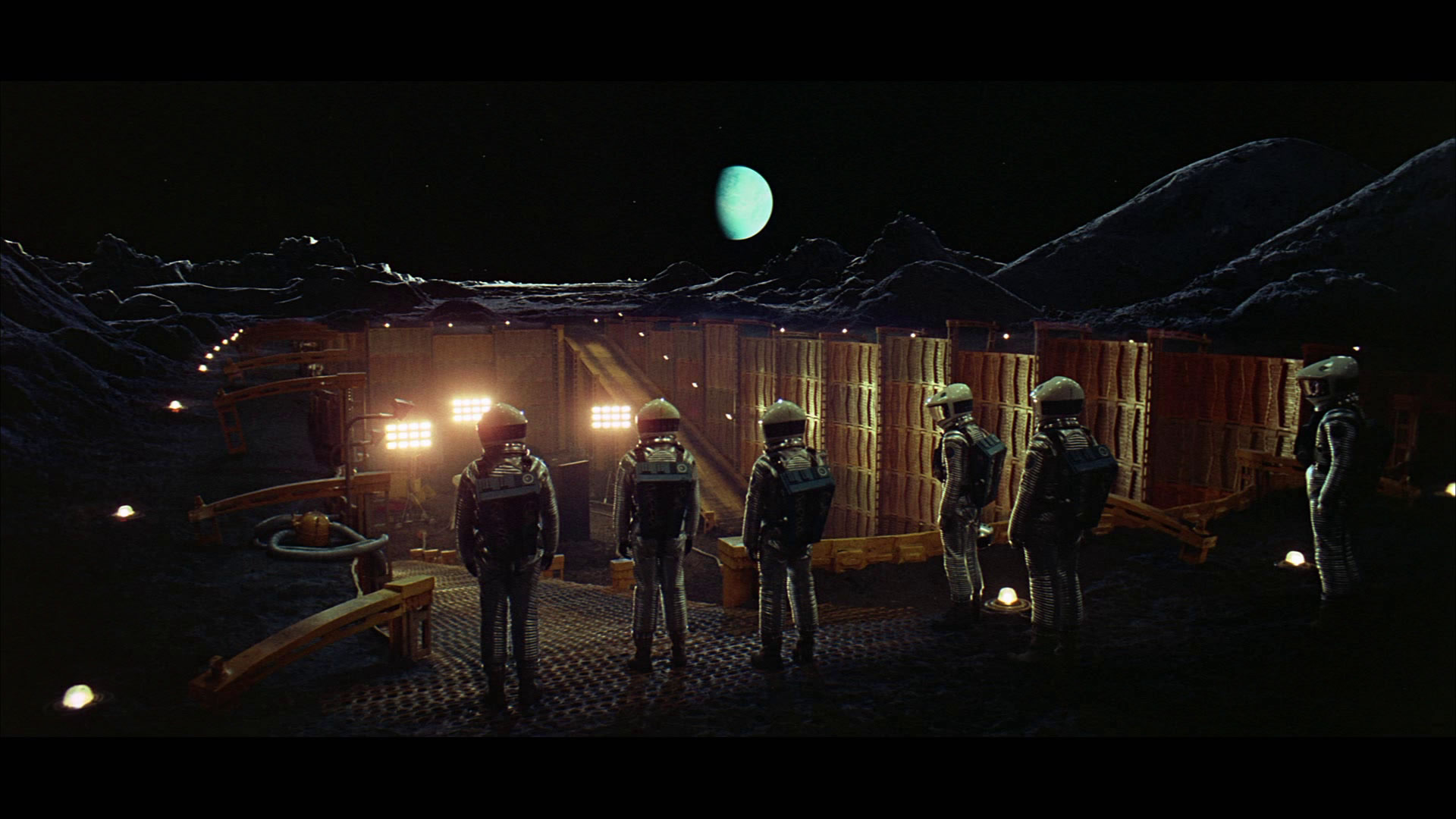2001: A Space Odyssey needs no introduction. It is one of the most important films ever made, and its influence on cinema is still felt today. With Kubrick’s artistic vision, the film is admired for various reasons: the music, visual effects, imagery, symbolism, narrative, and more. I find myself watching 2001 every once in a while and getting lost during the 2 ½ hours. I go back and forth on which film of Kubrick’s is my favorite, and, as I sit here watching it again, I think I’ve finally settled that this is my favorite. The ambition to create this film with the care, grace, and beauty is something that is admired by many.

The beginning of the film is a perfect setup. The “Dawn of Man” sequence is more than just an iconic opening, but also important for the film’s questions and imagery. First, it sets in stone that the film is going to be a slow movie, relying on visuals to communicate the narrative. The vast landscapes that stretch to what it seems to be forever is stunning. Even though we know it is Earth, The Dawn of Man looks like it happened on a completely different planet, as if Earth wasn’t our first home but a gift from the Monolith. The Monolith, one of many iconic aspects of the film, is also introduced, and presents questions and thoughts about the movie that carriy over the length of the film. When it is introduced, the Monolith appears to give the apes survival instincts. Before its appearance, the apes fed off the grass and had no knowledge how to best defend themselves. After the Monolith disappears, the apes know how to be violent. They are aware of what strength they have, and they put it to use, for better or worse. With that violence comes a desire to be the alpha male, an instinct that man can relate to throughout all of history. This lust for domination also leads to violence and separation, as the apes brutally beat a member of their tribe to show how strong they are now. The Monolith also gives them the desire to discover, something that takes form during the next two parts of the film.
Space is, and always will be, the greatest journey for mankind. There will always be something to discover in space. There’s literally no end to what man can achieve and find out there in space. Kubrick shows both the greatness and dangers of exploring the unknown. 2001 shows the discovery of man great achievements. The construction of vessels capable of deep space travel, the colonization of the Moon, and other technological advances show off the greatness mankind can achieve. With each set piece, space craft, and visually satisfying interiors comes the constant reminder of how incredible 2001 is. The film came out in 1968 and it is still one of the best looking movies ever. The attention to detail and Kubrick’s passion for accurate representation of space is breathtaking at times. One can only dream that movies were still made this way. That’s another discussion for another time.

The flip side to discovering greatness is also finding darkness lurking underneath the unknown. As a crew of explorers and adventurers settle down to examine the monolith, we know that this is an extraterrestrial being that should not be dealt with, yet we as humans have a never-ending lust for knowledge. The Monolith, at this point, is no longer the gift giver it was at the beginning. Once can conclude that it knows now that it can no longer present mankind with more knowledge. When it did, the apes discovered violence. What would happen if the Monolith gave us more? Would we know too much for our own good? The other evil, of course, is HAL. Having come out in 1968, I’m sure audiences at the time saw it as a caution for the future. HAL is a symbol of mankind creating something so powerful that we cannot control it. We cannot control our own creations, and this is still something that resonates today. It’s something that appears in many stories, both fiction and in real life, that Kubrick gives us a glimpse into the future, but just with a lot more classical music accompanying it.
2001: A Space Odyssey can be discussed at length for days; Stanley Kubrick can be talked about for months. There is a lot to take away from the film, and its praise from so many people and organizations is well deserved. There’s so much I want to keep discussing; the visuals, the score, designing the sets, the minimal dialogue. The list goes on. It’s almost been 50 years since its debut, and it is still one of the best to come out. As someone who loves the science fiction genre, I regard this as the best film in it, even though Star Wars is always my favorite. If you have gone your whole life without seeing this movie, I encourage you to go see this screening in 70 mm. If this is your first time seeing it, I envy you.
2001: A Space Odyssey
1968
Dir. Stanley Kubrick
142 minutes
Screens Sunday, 10/1, 7:30pm @Somerville Theatre
70mm screening!
Final night of the annual series: 70 mm and Widescreen Festival

